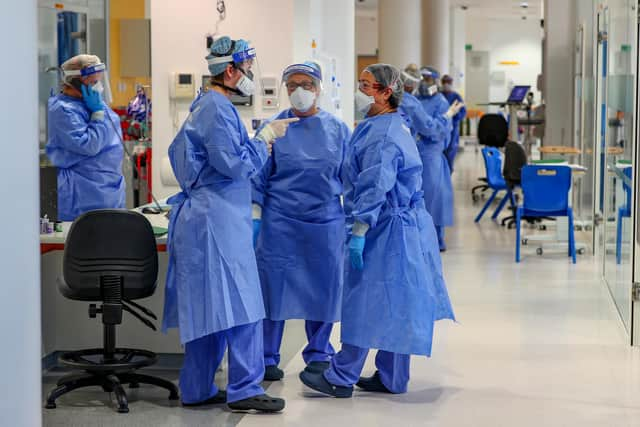Concerns over June 21 lockdown lift with data 'pointing in a more negative direction’
and live on Freeview channel 276
His comments come following the news that the Covid-19 variant that originated in India is now believed to be dominant in the UK.
Early evidence also it may lead to an increased risk of being admitted to hospital compared with the Kent variant.
Advertisement
Hide AdAdvertisement
Hide AdA total of 12,431 cases of the Indian variant, also known as the Delta variant, have been confirmed in the UK up to June 2, according to Public Health England (PHE).


This up 79% from the previous week’s total of 6,959.
PHE’s June 3 risk assessment for the Indian variant found that vaccines were less effective against the strain compared to the Kent mutation.
The findings, which have been determined with a “high degree of confidence” according to PHE, also suggest people are more at risk of hospital admission if infected with the variant.
However, figures show that more than two-thirds of people found with the Indian strain were unvaccinated.
Advertisement
Hide AdAdvertisement
Hide AdProfessor Ferguson would not be drawn on whether this would mean the June 21st unlocking would be pushed back but did raise concerns about the new data.
He told the Today Programme: “First of all, it’s not my job to make that decision, thankfully.
“I think the data is pointing this week in a more negative direction than it was last week, so it points towards the direction of being cautious.
“I think balancing, clearly, people’s desire – and there clearly is a built-up desire to get back to normal – against the potential risk is a very difficult judgment call.
Advertisement
Hide AdAdvertisement
Hide Ad“We know at the moment that the Delta variant, the Indian variant, is doubling across the country about every nine days with some variability place to place.
“But we haven’t fully seen the effect of what happened May 17 step three, the relaxation of restrictions, come through into that data, so we expect that to accelerate even more.”
He said it is still unclear how increased numbers of cases will translate into hospital admissions.
“We’re seeing an uptick in hospitalisations in the North West, in a couple of other areas, but it’s just too early to say, and that’s critical because we do expect vaccines to give a high level of protection still, but exactly how high it’s critical to what size third wave we might see,” he said.
Advertisement
Hide AdAdvertisement
Hide AdSome 278 people with the Indian variant attended A&E in the most recent week, resulting in 94 people being admitted to hospital overnight.
This compares with 201 A&E attendances in the previous week, with 43 admissions.
The majority of admissions continue to be people who have not been vaccinated, PHE said.
Of the 479 people who attended A&E in England between February 1 and May 31 and who were confirmed as having the Indian variant, 309 were unvaccinated while 18 had received both doses.
And of the 137 cases where attendance at A&E resulted in an overnight inpatient admission, 90 were unvaccinated while seven had received both doses.